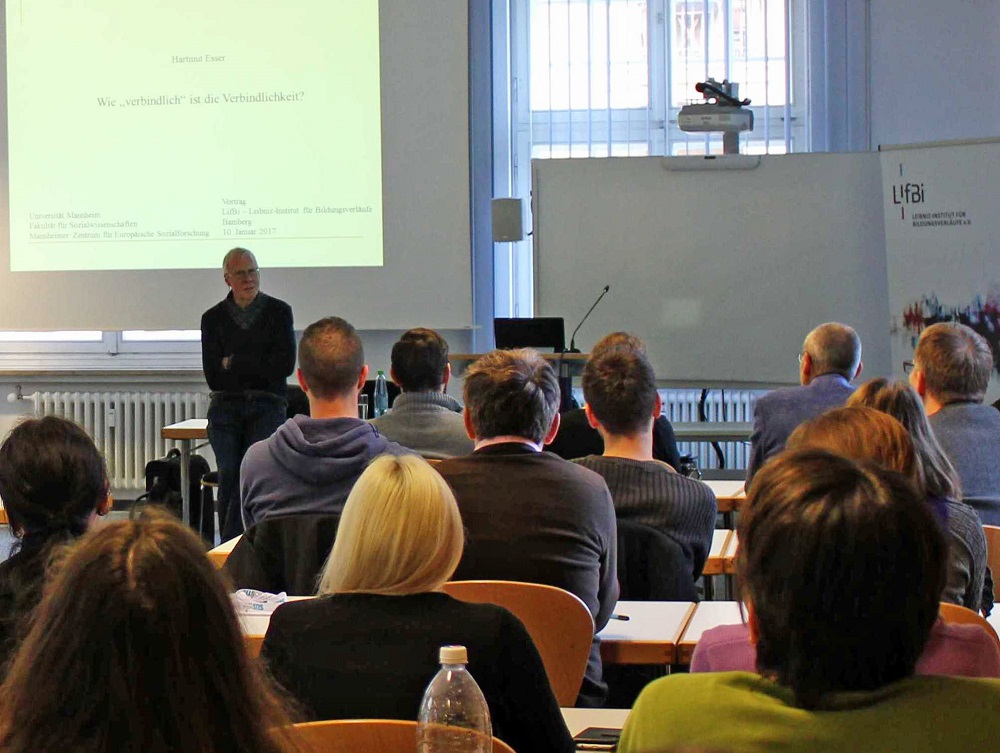
Prof. Dr. Hartmut Esser talked about the effects of educational systems on social and ethnic educational inequality.
For years, the key point in the scientific and public discussion of the German PISA results has been the fact that the (early) differentiation according to students’ competencies and performances at the end of elementary school exacerbates rather than ameliorates social (and ethnic) differences. Moreover, according to this line of argument, the early separation into various educational pathways does not encourage students’ performances. Therefore, using data of the NEPS, Esser investigated the effects of diverse regulations concerning school transitions for groups of German Federal States with different traditions. He analyzed not only educational participation but also the performances of the native population and children with a migrant background.
In his talk, Esser pointed out significant deviations from the abovementioned line of argument. These imply that a stringent orientation of differentiation according to students’ competencies and performances at the end of elementary school increases the performance level without strengthening the effects of social origin as a further intensification of social inequality. Moreover, it becomes apparent that children with migration background will rather benefit from the early differentiation of educational pathways compared. In this context, differentiation represents the recommendations for educational choices and parents’ response to them. Esser opened up a new perspective on this process by outlining the fact that parents will ignore recommendations proposing a transition toward higher forms of education to a varying extent depending on their social situation. Therefore, gifted children, particularly from families with a lower socioeconomic status, will more frequently attend school types that do not fully exploit their performance potential. This finding has encouraged Esser to demand: No talent left behind!
It is obvious that measures need to be taken. The inclusion of additional variables from the NEPS data set announced by Esser will certainly lead to further exciting results within the scope of this unconventional approach.